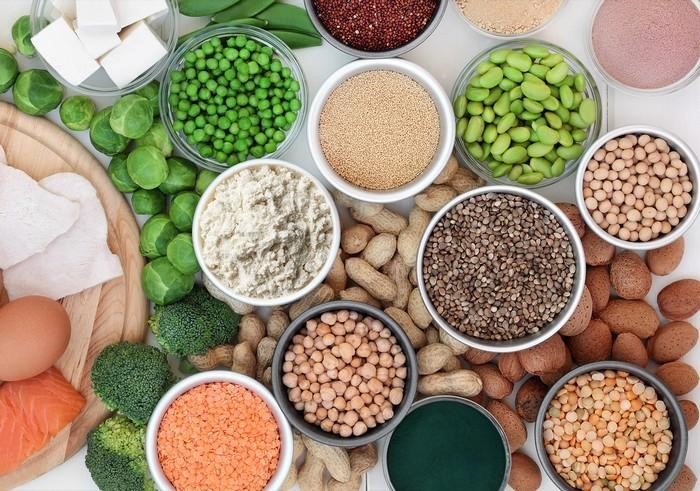Do you wish to enhance your protein intake without soy products? Are you allergic to soy or soy products, do you have soy intolerance, or are you simply indifferent towards wheat? Don’t worry, because there are many ways you can add up your protein without soy whatsoever.
There are sufficient soy-free foods that can help you achieve a healthy diet even during your soy allergies or intolerance and to those who do not like soy. In this article, emphasize five protein options which should be in every vegetarian’s diet, and they will be supported with articles turning wise words into wise actions.
1. Pea Protein
So it has been becoming more popular to people who needs alternatives to soy from other plants in these recent years. Derived from yellow split peas, this protein source has very high protein as well as good amino acids composition. This protein also includes iron; and hence it can be helpful for those people who would also like to boost their mineral intake.
Research Note:
A 2015 study published in the Journal of the International Society of Sports Nutrition studied the comparative effects of pea protein against whey protein post exercise intake on muscle thickness and strength and it was established that they achieved similar results.
2. Quinoa
This grain has been termed a grain referred as ‘complete protein’ meaning it has all the nine essential amino acids that the human body does not produce. Additionally, this grain is high in nutrients such as magnesium and phosphorus and is also fiber filled making it fit in the classification of a nutrient dense food. Quinoa can be serve with salads, soups or even cooked instead of rice.
Research Note:
Food Chemistry has described quinoa as an alternative for food products for vegans and people with celiac existence. Quinoa is known to have a very high ratio of protein to carbohydrate content as well as several antioxidants some of which may help combat inflammation and are generally good for health.
3. Hemp Seeds
Do not underestimate the little seed hemp has in terms of nutrition as it leads in a number of very positive attributes, the hemp seed has protein, healthy fats as well as vitamins and minerals. As far as a plant-based protein source goes these are as good as it gets if soy is not on your menu.
They get a road muncher out when some protein is desired and hemp seeds are again one of the few foodstuffs with the right balance of omega 3 and omega 6 acids which have heart and anti-inflammatory benefits.
Research Note:
As explained in a review in Frontiers in Nutrition, hemp seeds are complete proteins which means that they contain all the essential amino acids. In addition, such seeds of hemp are also easy to assimilate i.e. the body can utilize as much as 98 percent of the protein present in the hand seeds and hence they can be very beneficial in satiating protein requirements.
4. Eggs
The egg is one of the most common and cheap sources of Proteins in the form of a complete protein. All of them will have all the essential amino acids in the right amounts and therefore are very popular with people who want effective protein sources in a simple way. Be they scrambles, hard boiled, or incorporated in any other dish recipe, which is highly adaptable and nutrient rich.
Research Note:
As stated in the American Journal of Clinical Nutrition, several studies point to eggs being a very rich source of proteins. These proteins are advantageous from the point of view of bioavailability, which refers to the extent the nutrients obtained from the food ingredients can be utilized by the body.
5. Chicken Breast
For those who are not strict vegetarians, chicken breast is indeed one of the more palatable and reliable sources of protein. It contains absolutely no fat and is full of high quality lean protein making it an ideal food for body builders and people who want to lose weight.
Research Note:
According to recent research by a journal of nutrition published by Advances in Nutrition, chicken breast is one of the lean meats regarded as essential in muscle enhancement and recovery because it possesses very high bioavailability and a complete range of amino acids.
Conclusion
Looking for protein sources with turkey and no soy is quite simple. There are balanced diet options which do not include soy whether you are an animal protein eater (eggs and chicken) or a vegetarian and eat pea protein powder and quinoa (plant-based protein sources). To provide an effective health solution in this case, it is necessary to begin including these soy-free proteins into the diet.
